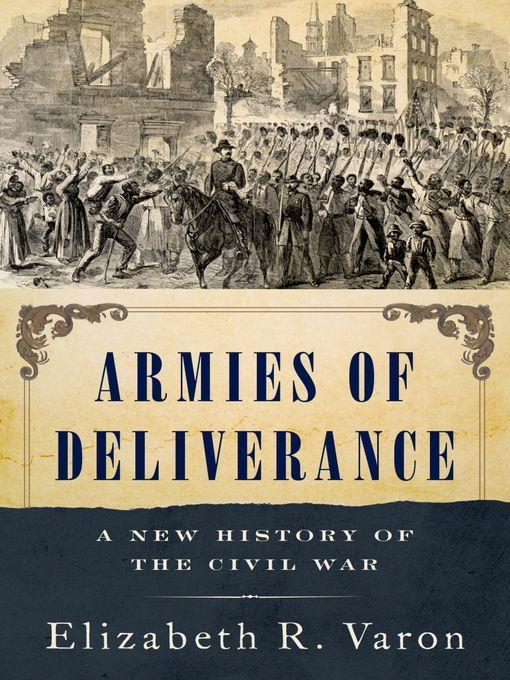
Armies of Deliverance
A New History of the Civil War
کتاب های مرتبط
- اطلاعات
- نقد و بررسی
- دیدگاه کاربران
نقد و بررسی

December 15, 2018
A fresh interpretation of the Civil War that illuminates why Americans took up arms against each other--and why they thought they did.Varon (American History/Univ. of Virginia; Appomattox: Victory, Defeat, and Freedom at the End of the Civil War, 2013) argues that the Union went to war with the Confederacy in the belief "that white Southerners could be redeemed"--redeemed, that is, from the tyranny of the planter class and the slaveholding economy and culture they imposed on the white working class. The premise of the South, conversely, was "that Northerners and Southerners could never again be countrymen." Both suppositions had motive power, rousing armies to take to the field and fueling a bloody war that lasted for four years. Still, the Union belief that federal armies would be greeted with open arms as liberators in the South turned out to be fatally flawed; as Varon observes, "Lincoln and other Northern political figures and writers were clearly wrong about a Southern populace deceived and coerced into supporting the secessionist movement." They had some reasons for thinking so, however, among them North Carolina's slowness to secede and the fact that there were so many North Carolinians who "actively and sometimes violently rejected the demands of Confederate nationalism," whether because they were Unionists or, as the war progressed, because they had deserted from Confederate armies--in fact, between 15 and 20 percent of the state's soldiers did. Just as the South was not monolithic, so the Union had its fragments and factions. The author reckons that although Lincoln was successful in piecing together a coalition of Unionists of varying stripes, the Union army was not enthusiastic in its support for him or, at the war's end, for Reconstruction, which helps explain why that decadelong effort is now widely considered a failure.An accessible work of scholarship that will be of great interest to students of Civil War history.
COPYRIGHT(2018) Kirkus Reviews, ALL RIGHTS RESERVED.

























دیدگاه کاربران